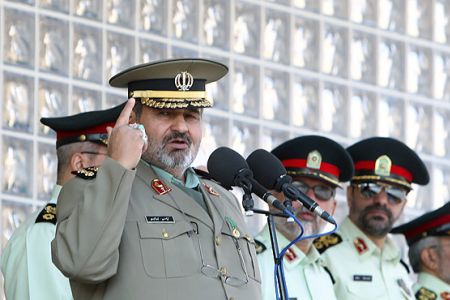Alwaght-Top Iranian military commander says enemies of Islam and the Israeli regime ordered [Persian] Gulf Arab monarchies to brand Lebanon’s resistance movement Hezbollah as a terrorist organization.
Iranian Armed Forces Chief of Staff Major General Hassan Firouzabadi noted that the blacklisting Hezbollah as a terrorist body was in line with Saudi Arabia’s proxy war to prepare the ground for the US and Zionists to achieve their ominous objectives in the region.
"No doubt the move was made upon an order by the Zionists and the sworn enemies of Islam and Great Prophet Mohammad (PBUH)," Firouzabadi said on Sunday.
He added that, “Despite efforts by the House of Saud and its regional and trans-regional allies, Hezbollah's deep-seated position will remain intact. It will not shift the balance of power in the region. It will not help the Zionists extend their grip on the occupied Palestinian territories."
Firouzabadi pointed out that the branding Hezbollah as terrorists was a strategic mistake and a very hasty and impulsive measure which runs counter to the interests of Muslim nations.
"Hezbollah is the son of the Lebanese nation," he said, adding that the movement has done a lot for the the Arab country.
Major General Hassan Firouzabadi emphasized that despite efforts by Riyadh and its regional allies, the move would fail to change Hezbollah’s role in establishing power balance in the region.
Last, the six-nation [Persian] Gulf Cooperation Council issued a statement labeling Hezbollah a terrorist organization. The bloc, comprising Saudi Arabia, Qatar, the United Arab Emirates, Oman, Bahrain and Kuwait, claimed that Hezbollah's moves in the region are against international values and moral and human principles.



























